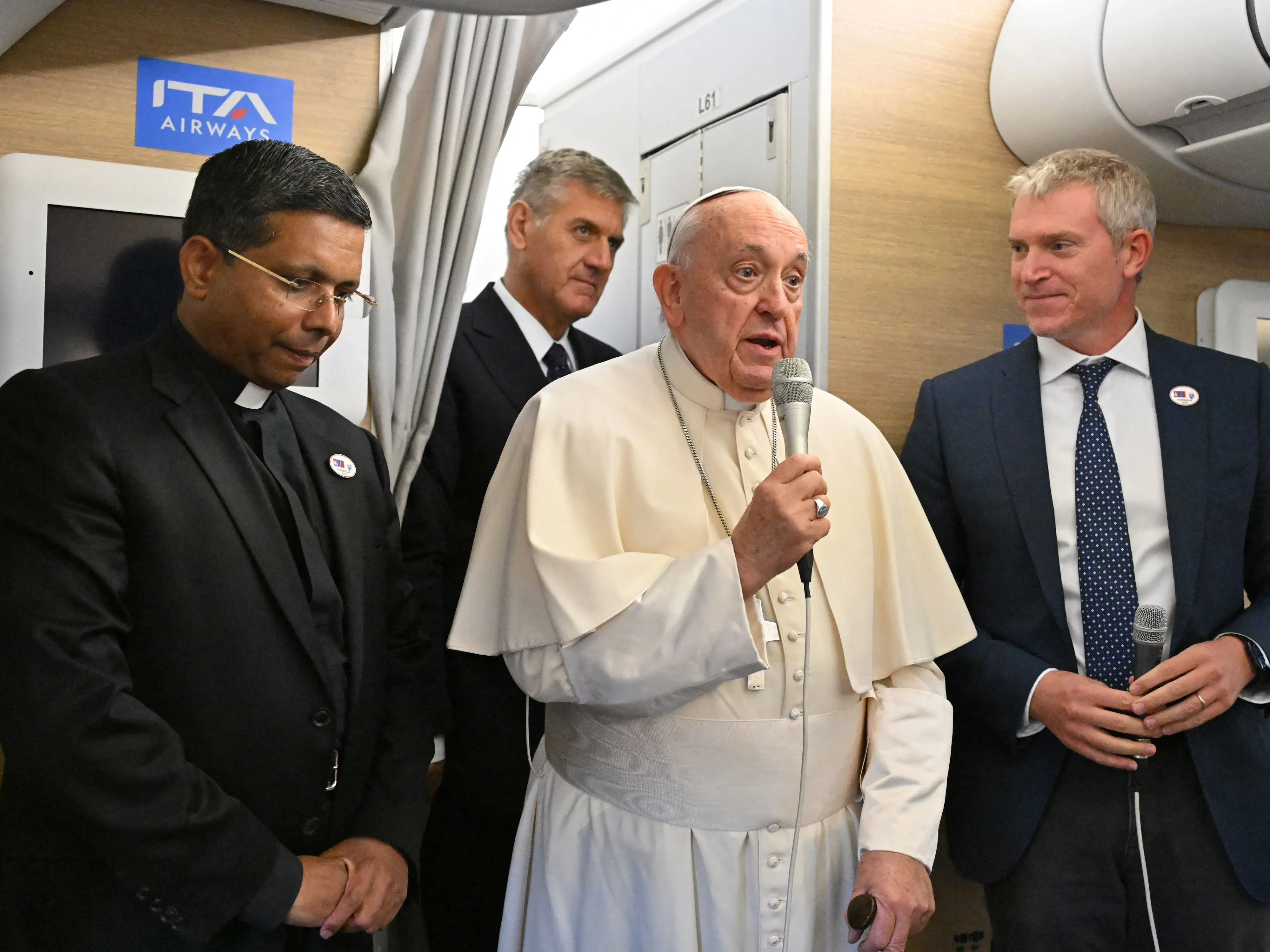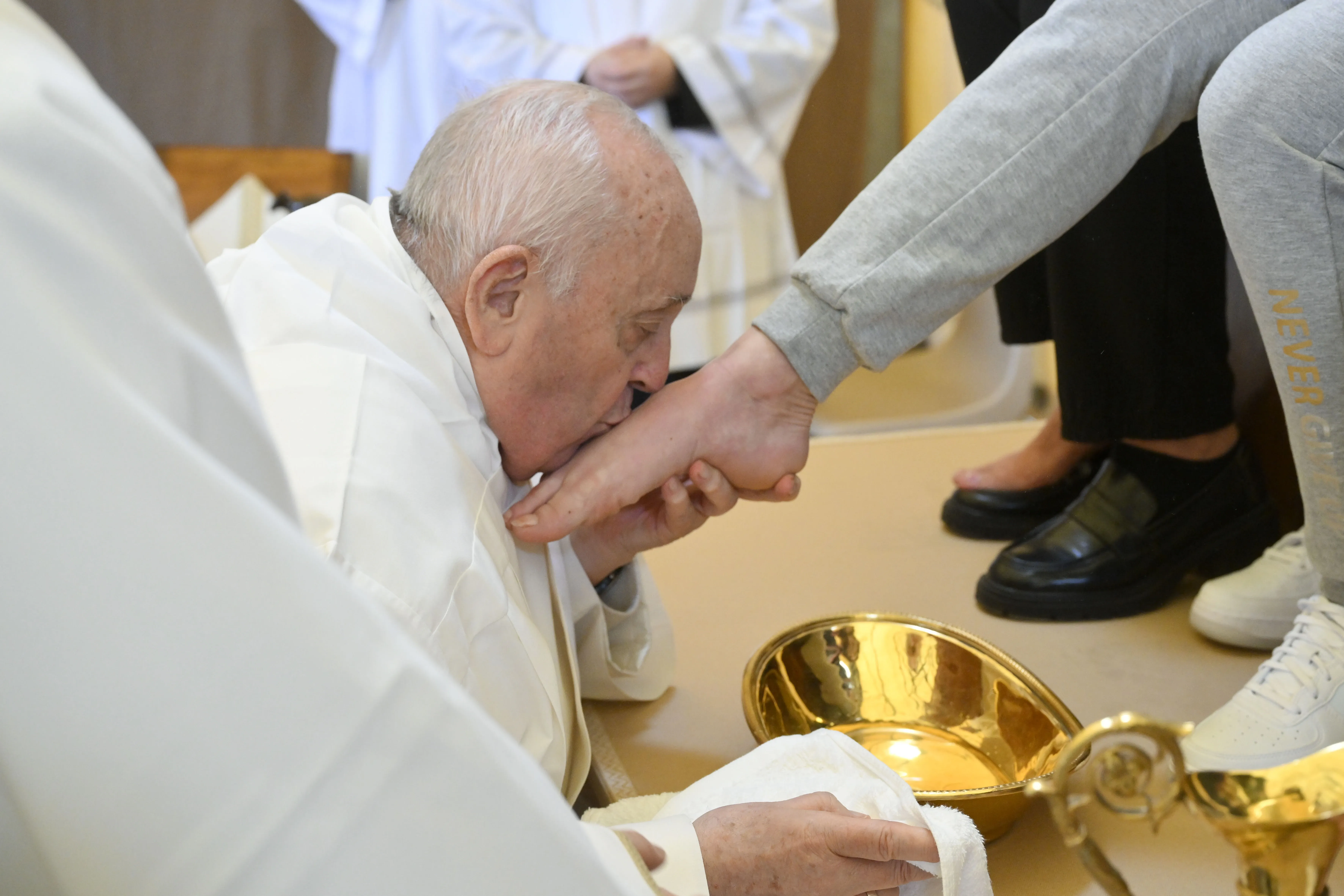“I come from this vibrant community where the faith is passed down through generations as a family treasure,” he said.
The cardinal-designate noted that he was brought up in a Catholic environment where daily Mass was encouraged and he prayed evening prayers daily with his parents and grandparents.
“It was this life of faith in my family that helped me discover my vocation to the priesthood,” Koovakad said. He was also inspired by an uncle who is a priest and religious and by his former archbishop, Mar Joseph Powathil, who instilled in him “a deep love for the Church,” the priest said.
The soon-to-be cardinal was ordained a priest in 2004. Soon after, he moved to Rome, where he received a doctorate in canon law in 2006 from the Pontifical University of the Holy Cross with a doctoral thesis on “The Obligation of Poverty for Secular Clerics in the Codes of Canon Law.”
The topic of Koovakad’s thesis reflects his personal dedication to the poor, according to the priest and diplomat’s brother-in-law, Mathew M. Scaria, who told UCA News last month that Koovakad “is compassionate to the poor.”
“Pope Francis’ love for the poor and marginalized has always resonated with me, and we share this common outlook,” Koovakad told Vatican News. “I also entered the seminary with a desire to help the poor, in whom we encounter the privileged presence of Jesus Christ.”
The cardinal-designate entered the diplomatic service of the Holy See in 2006, holding various positions in nunciatures in Algeria, South Korea, Iran, Costa Rica, and Venezuela until 2020.
After joining the Vatican’s Secretariat of State in the summer of 2020, in the fall of 2021 Koovakad, who had been given the honorary title of “monsignor,” took over the job of planning trips for Pope Francis.
The role includes visiting countries to study their safety and to set up logistical details, such as the pope’s agenda.
“As a Christian, my joy knows no bounds, and it is this joy that helps me overcome any difficulties that arise [in this job],” Koovakad said in the Vatican News interview. “Personally, I like to view the papal visits as pilgrimages of the successor of Peter. Seen in this way, the great responsibilities are managed through prayer and close and harmonious cooperation with all the individuals involved.”








